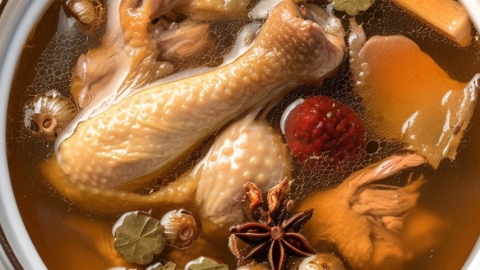What kind of soup should I drink after surgery to recover faster?
Generally speaking, what kind of soup to drink after surgery for faster recovery mainly depends on individual conditions. To promote recovery, one can choose to drink chicken soup, fish soup, beef soup, tomato soup, pigeon soup, etc. The specific analysis is as follows:

1. Chicken Soup
Chicken soup is highly nutritious and rich in proteins, vitamins, and minerals. Drinking it in moderation helps gastrointestinal absorption and digestion and benefits immune system regulation. It also aids in postoperative recovery.
2. Fish Soup
Such as crucian carp soup or cuttlefish soup. These fish are rich in high-quality protein and calcium. Drinking fish soup in moderation can supply necessary nutrients and energy to the body and benefit wound healing.
3. Beef Soup
Beef is rich in nutrients such as protein and calcium. When used to make soup, it helps enhance immunity, reduce the risk of postoperative infection, and promote wound recovery.
4. Tomato Soup
Tomato soup is rich in vitamin C and antioxidants that help remove free radicals, accelerate wound healing, and assist in reducing inflammation. Additionally, the dietary fiber in tomatoes promotes gastrointestinal motility and helps relieve postoperative constipation and bloating.
5. Pigeon Soup
Pigeon soup has a nourishing effect on the body. Drinking it moderately after surgery can help regulate physical condition, improve overall health, and is suitable for individuals with qi deficiency.
It should be noted that regardless of the type of soup consumed after surgery, attention should be paid to quantity and gradual progression to reduce discomfort. In addition, regular postoperative observation is necessary, and if poor recovery or bleeding occurs, timely targeted treatment is required.




